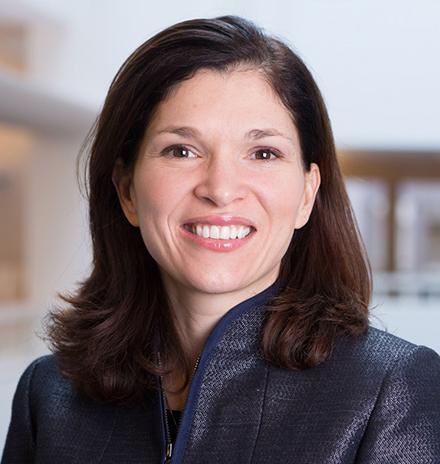In today’s complex global economy, some businesses grapple with fundamental decisions regarding their structure and operations. A core challenge lies in determining when to vertically integrate suppliers and when to maintain external contracts. Recent research by Harvard Business School Professor, Laura Alfaro, and a research team (see the bottom of the page for author details) that includes fellow HBS Professor and co-Principal Investigator of D^3’s Digital Reskilling Lab, Raffaella Sadun, “Come Together: Firm Boundaries and Delegation“, illuminates the interplay between firm integration and the allocation of decision-making authority. By analyzing data from thousands of companies across 20 countries, the study offers new insights into how vertical integration and delegation are driven by value, uncertainty, and strategic flexibility.
Key Insight: A New Vision for Integration
“The “control over control” that comes with ownership helps guarantee the firm a minimum quality and quantity of inputs, and thereby introduces a novel mechanism of supply assurance as a rationale for integration.” [1]
Traditionally, the literature on firm boundaries has focused on how vertical integration helps to gain direct control over production, allowing firms to impose decisions that independent suppliers might resist, but which improve HQ’s productivity. In this study, the researchers expand on the traditional view by emphasizing the “control over control” aspect of integration, where ownership confers the right to reassign control rights, thus enabling HQ not only centralize control within HQ, but also gain more flexibility in delegating decision-making to the party best suited to handle production challenges as they emerge. This dynamic allocation of control is not possible with outsourcing, as non-integrated suppliers maintain their decision-making rights. Therefore, the researchers present a new perspective on supply assurance, where integration provides the option to strategically allocate control rights in response to the changing demands of production.
Key Insight: The Value Principle
“[F]irms delegate more decisions to integrated suppliers that produce more valuable inputs [and …] are more likely to integrate suppliers of more valuable inputs.” [2]
The researchers find that for suppliers that contribute more value to the final product, firms are both more likely to integrate those suppliers and to grant them more autonomy when integrated. Specifically, a one standard deviation increase in input value raises the probability of integration by 64% and increases delegation to integrated suppliers by 0.072 standard deviations. While the delegation standard deviation may appear small in magnitude, the researchers compare it to the effect of another variable, firm size, and find delegation’s relative effect to be noteworthy. Researchers suggest that firms are more likely to delegate to high-value suppliers because they want to leverage the suppliers’ expertise in troubleshooting production issues, and ultimately benefit from this specialized knowledge in their decision making.
Key Insight: What Role Uncertainty Plays
“Firms should be more likely to integrate suppliers that operate in riskier input industries.” [3]
The researchers find that firms are more likely to integrate suppliers in industries with greater productivity dispersion, or variability of labor productivity, among independent suppliers, as the increased uncertainty enhances “option value”. The value option of integration increases in situations where productivity dispersion is high because firms face a greater likelihood of encountering unexpected production challenges. Integration, then, provides a means to mitigate those challenges by allowing firms to either centralize control of the production process or delegate decision-making to the integrated supplier, depending on the nature of the problem.
Key Insight: The Relationship Between Integration and Delegation
“Our data also show that more vertically integrated firms tend to delegate more.” [4]
Contrary to the common assumption that integration and centralization go hand-in-hand, the researchers found a positive correlation between vertical integration and delegation at the firm level. The research team suggests this is likely due to the fact that high value firms are more likely to be integrated, and firms that are integrated are given more autonomy to delegate. This reflects the “value principle” – that input value and firm profitability shape multiple aspects of organizational design, and highlights the importance of studying integration and delegation jointly, rather than in isolation.
Why This Matters
For C-suite executives and business professionals, the insights from this research offer a roadmap for navigating the complexities of modern supply chains. Strategic integration is not just about ownership; it’s about maintaining flexibility and aligning decision-making authority with expertise. In industries facing rapid innovation and uncertainty, these principles are essential for maintaining a competitive advantage. By understanding the interplay between integration and delegation, leaders can make informed decisions that enhance organizational resilience and operational efficiency. In an era where adaptability is key, the ability to balance control with delegation is not just a strategic choice—it’s a business imperative.
References
[1] Laura Alfaro, Nick Bloom, Paola Conconi, Harald Fadinger, Patrick Legros, Andrew F. Newman, Raffaella Sadun, and John Van Reenen, “Come Together: Firm Boundaries and Delegation” Journal of the European Economic Association Volume 22, Issue no. 1 (February 2024): 34–72, 35.
[2] Alfaro et al., “Come Together: Firm Boundaries and Delegation”, 62
[3] Alfaro et al., “Come Together: Firm Boundaries and Delegation”, 61.
[4] Alfaro et al., “Come Together: Firm Boundaries and Delegation”, 63.
Meet the Authors

Laura Alfaro is the Warren Alpert Professor of Business Administration. At Harvard since 1999, she served as Minister of National Planning and Economic Policy in Costa Rica from 2010-2012, taking a leave from HBS. She is Co-Editor of the Journal of International Economics and the World Bank Research Observer and Vice-President of LACEA, the Latin American and Caribbean Economist Association and a co-Chair of the World Economic Forum’s Global Future Council on the Future of Growth. She is also a Faculty Research Associate in the NBER International Finance and Macroeconomics (IFM) Program and the International Trade and Investment (ITI) Program, CEPR IFM program and co-Chair of the NBER’s Economics of Supply Chains conference, a joint effort with the Department of Homeland Security.

Nicholas Bloom is the William Eberle Professor of Economics at Stanford University, a Senior Fellow of SIEPR, and the Co-Director of the Productivity, Innovation and Entrepreneurship program at the National Bureau of Economic Research. His research focuses on management practices and uncertainty. He previously worked at the UK Treasury and McKinsey & Company. He has a BA from Cambridge, an MPhil from Oxford, and a PhD from University College London.

Paola Conconi is a Professor of Economics (Statutory Chair) at the University of Oxford and a Professorial Fellow at New College Oxford. Before joining Oxford, she was a Professor of Economics at the Université Libre de Bruxelles and a member of the European Center for Advanced Research in Economics and Statistics (ECARES). She obtained a B.A. in Political Science from the University of Bologna, a M.A. in International Relations from the School of Advanced International Studies (SAIS) of Johns Hopkins University, and a M.Sc. and Ph.D. in Economics from the University of Warwick.

Harald Fadinger is a Professor of Economics at the University of Vienna. He is also a Research Fellow in the areas Trade and Regional Economics and Climate Change and the Environment at the Centre for Economic Policy Research (CEPR), London/Paris, a Senior Member of the Mannheim Centre for Competition and Innovation (MaCCI), and a Senior Research Fellow at the Institute for Advanced Studies (IHS) Vienna.

Patrick Legros is a Professor of Economics at the Université libre de Bruxelles (ECARES). His research interests are in the theory of contracts, microeconomics, industrial organization, competition policy, and regulation. He has taught courses in intermediate and graduate microeconomics, intermediate and graduate industrial organization and antitrust, graduate courses in contract theory.

Andrew F Newman is a Professor of Economics at Boston University and a Research Fellow of the CEPR in London. His research and teaching interests are in economic theory, especially as applied to understanding organizations, industries, inequality, and economic development. He is a Fellow of the Econometric Society, a Fellow of BREAD, and a co-founder and past President of ThReD. Before arriving at BU, he was Professor of Economics at University College London and held posts at Columbia and Northwestern. He has also had visiting positions at Harvard, Princeton, the Institute for Advanced Study, Yale, and Brown.

Raffaella Sadun is Charles E. Wilson Professor of Business Administration at Harvard Business School, and is a Co-Chair of Harvard Business School’s Project on Managing the Future of Work and co-PI of the Digital Reskilling Lab. Her research focuses on managerial and organizational drivers of productivity and growth in corporations and the public sector. She co-founded several large-scale projects to measure management practices and managerial behavior in organizations, such as the World Management Survey, the Executive Time Use Study, and the first large scale management survey in hospitals, MOPS-H, conducted in partnership with the US Census Bureau.

John Van Reenen is the Ronald Coase Chair in Economics and a Professor in the Department of Economics at the London School of Economics and Political Science. His research expertise is in applied microeconomics with a focus on the causes and consequences of technological and managerial innovation especially with regards to the labor market.
